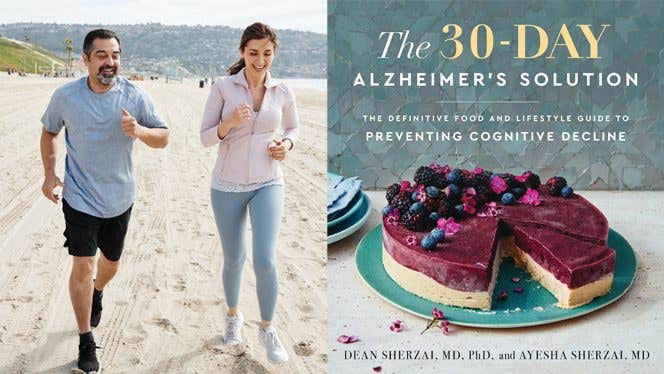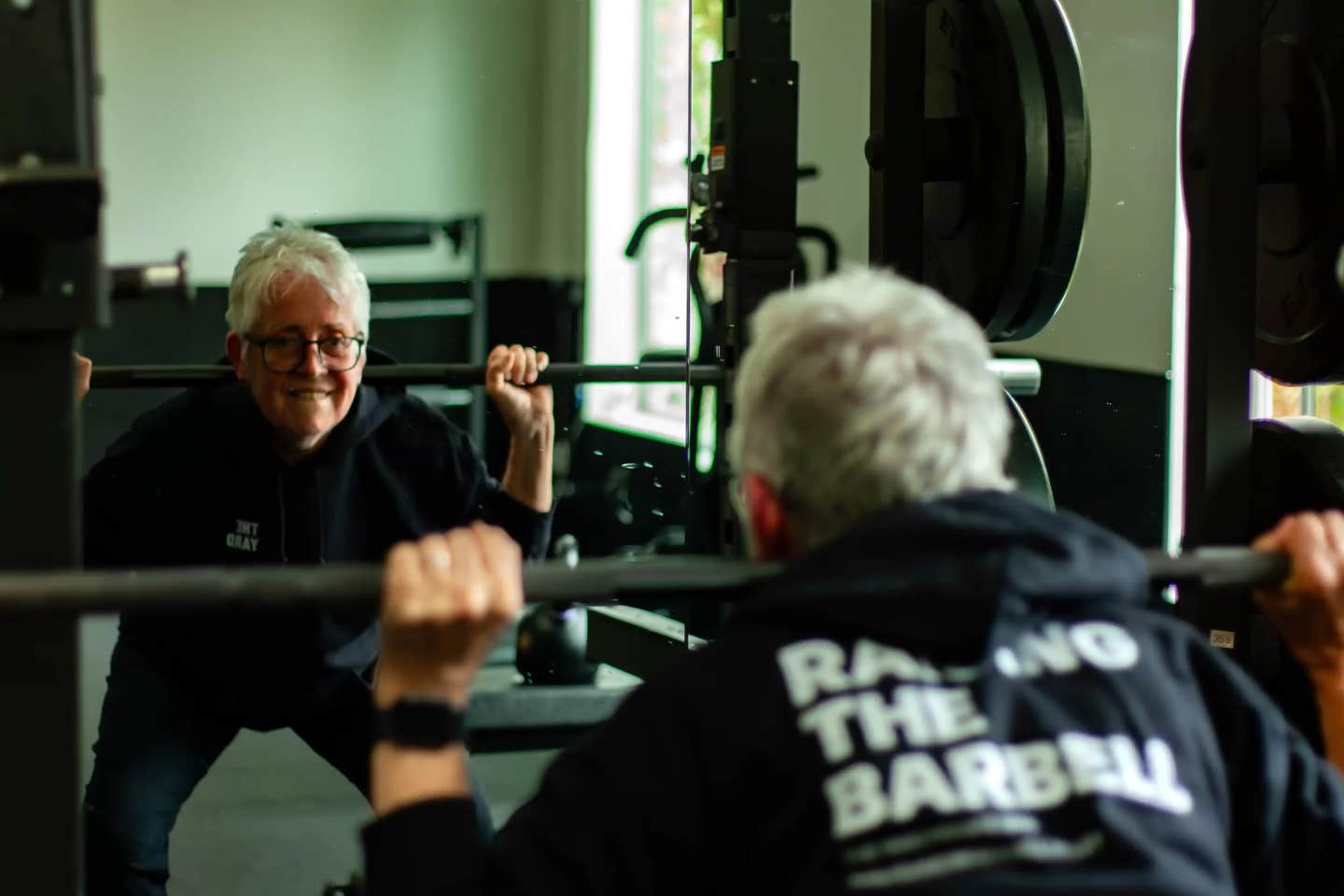
How Exercise Boosts Brain Health
This week, award-winning neurologists Drs. Dean and Ayesha Sherzai published the follow-up to their 2019 release, The Alzheimer's Solution. In this passage from the brand-new book, they explore the link between physical activity and cognitive health.
We know you’ve heard this before. Breaking news: exercise is good for you! But the thing is, it really, really is. And not just for cardiovascular health, although that’s true, or mental health, although that’s also true, but very specifically for brain health. Regular exercise reduces inflammation and oxidative processes, so that if you eat an unhealthy meal, exercise will help you create an environment that reduces the damage caused by that meal. Now this doesn’t mean you should go out and eat a bunch of processed food and think that if you run a mile afterward you’ve done your brain any favors. You haven’t. You’ve just made the processed food a little less damaging.
Exercise—which we define as both aerobic exercise and strength training—has an enormous impact on brain health, automatically boosting cognitive function by increasing blood flow and combating clogged arteries, vascular stiffness, insulin resistance, and high cholesterol. Long periods of inactivity mean less blood makes its way to your brain.
Imagine a conversation with a co-worker about a project you’re working on. The deadline is approaching, and you ask your co-worker how to do a specific task. That person explains it to you, and you even watch over his or her shoulder to see how it’s done. You feel like you’ve got it, and so you say thank you and head back to your desk. But on your way, you stop and get some water, take a quick personal call, and by the time you’re sitting back at your computer, you’ve completely forgotten everything your co-worker told you. How do I do that task, again?
We’ve all had this experience. As our brains age, we lose neurons and the connections between them, and short-term memories like these become harder to hold on to. Exercise can slow that loss and enhance that connectivity, no matter how old you are. Those connections are particularly important for the medial temporal lobe, the part of your brain responsible for short-term memory and its conversion to long-term memory. Aerobic and strength activities boost both the number and viability of those connections, providing stronger, more plentiful hooks to hang that memory on. Exercise also helps the various parts of the brain communicate with each other because it improves the integrity of the white matter tracts of the brain. Best of all, with regular exercise, you can grow millions of new brain connections, even late in life.
The good news is that you don’t need to run a marathon to have a healthy brain. Something as simple as a daily brisk walk and a few squats can lower your risk of Alzheimer’s by 40 percent. Exercise doesn’t have to be a burden.
Excerpted fromThe 30-Day Alzheimer's Solution by Dean Sherzai, MD, PhD and Ayesha Sherzai, MD and reprinted with permission from HarperOne, an imprint of HarperCollins Publishers. Copyright 2021.
About the Author

About the Author
Ayesha Sherzai, MD, and Dean Sherzai, MD, PhD
Join our mailing list
Get free recipes and the latest info on living a happy, healthy plant-based lifestyle.
By providing your email address, you consent to receive newsletter emails from Forks Over Knives. We value your privacy and will keep your email address safe. You may unsubscribe from our emails at any time.
